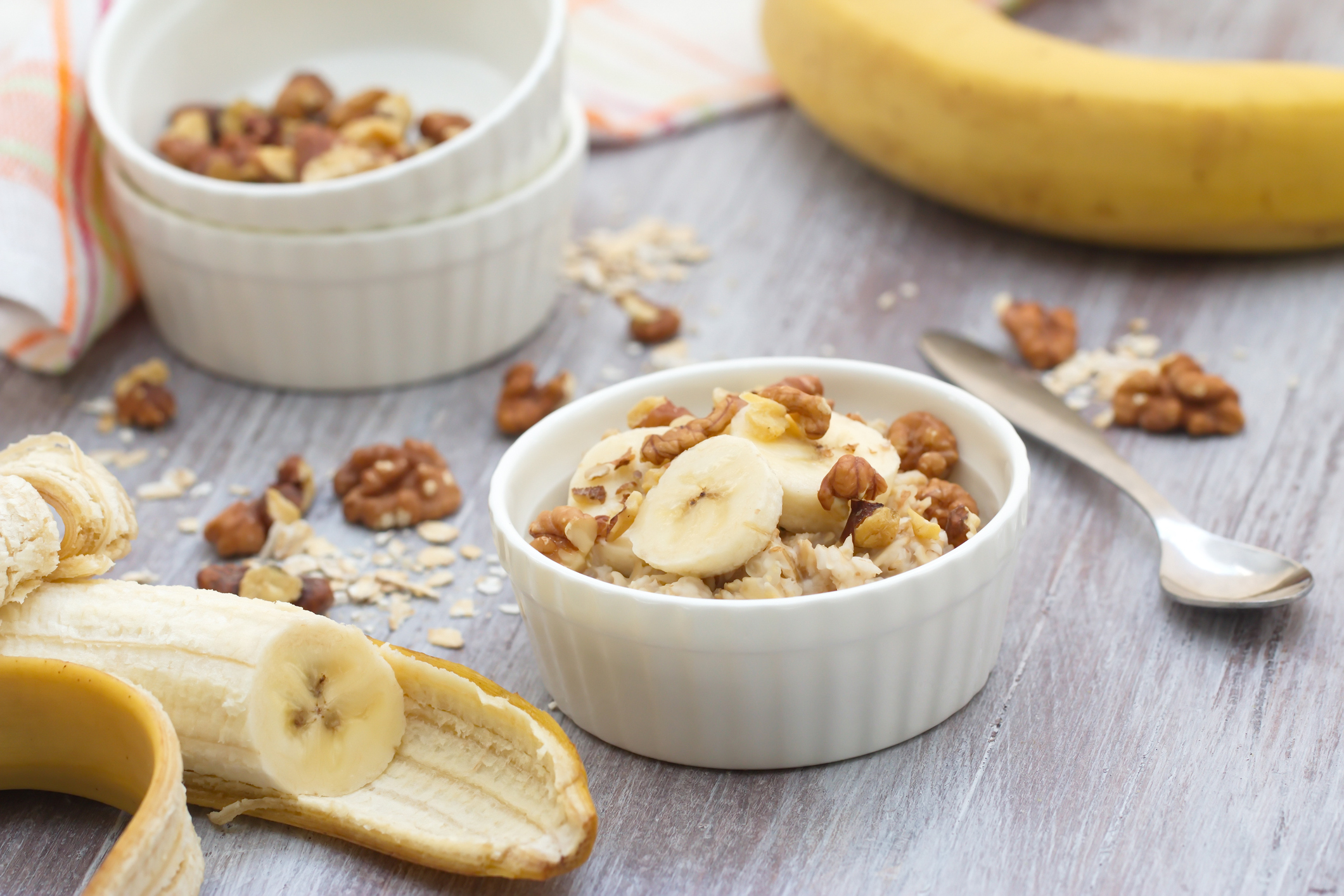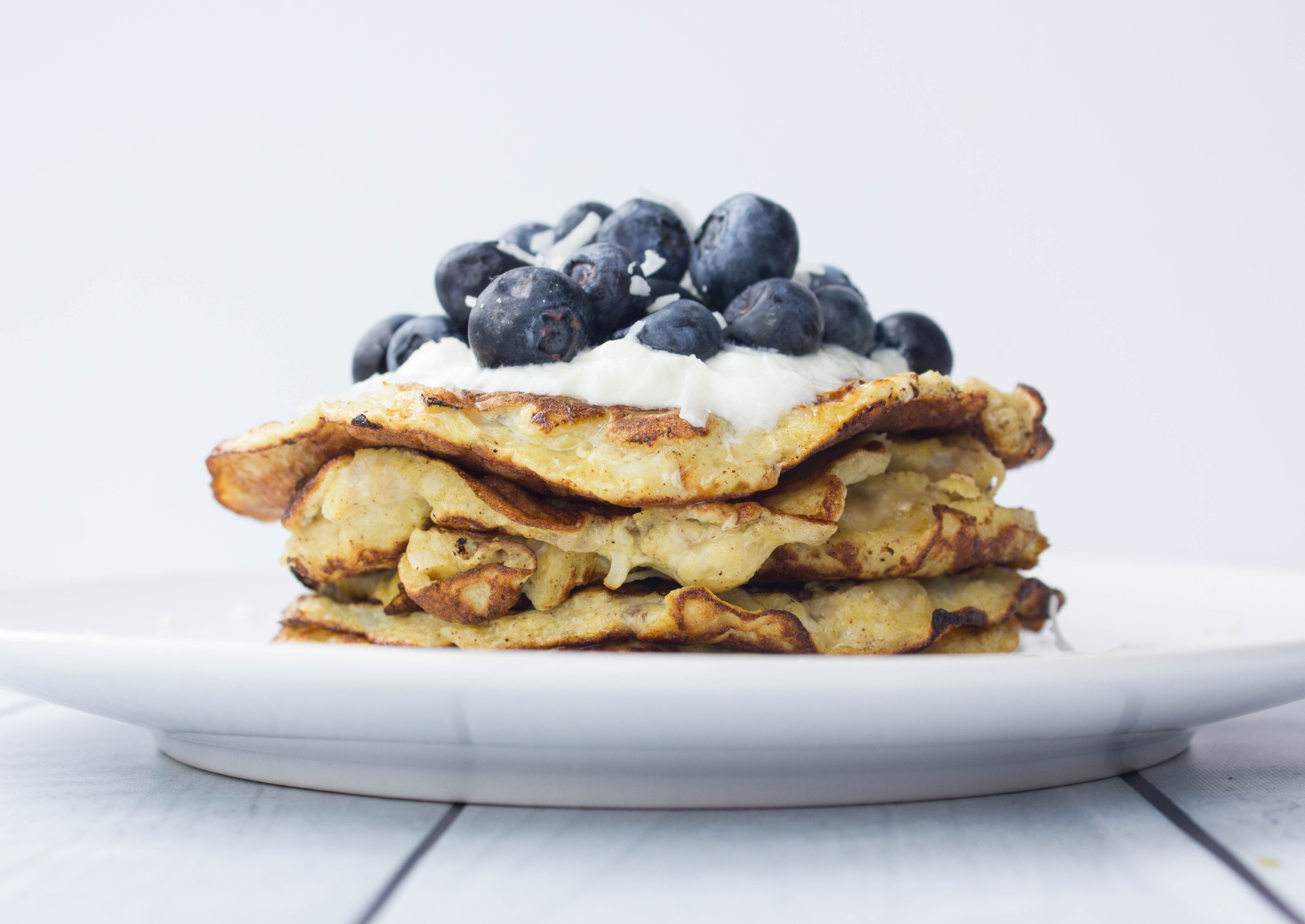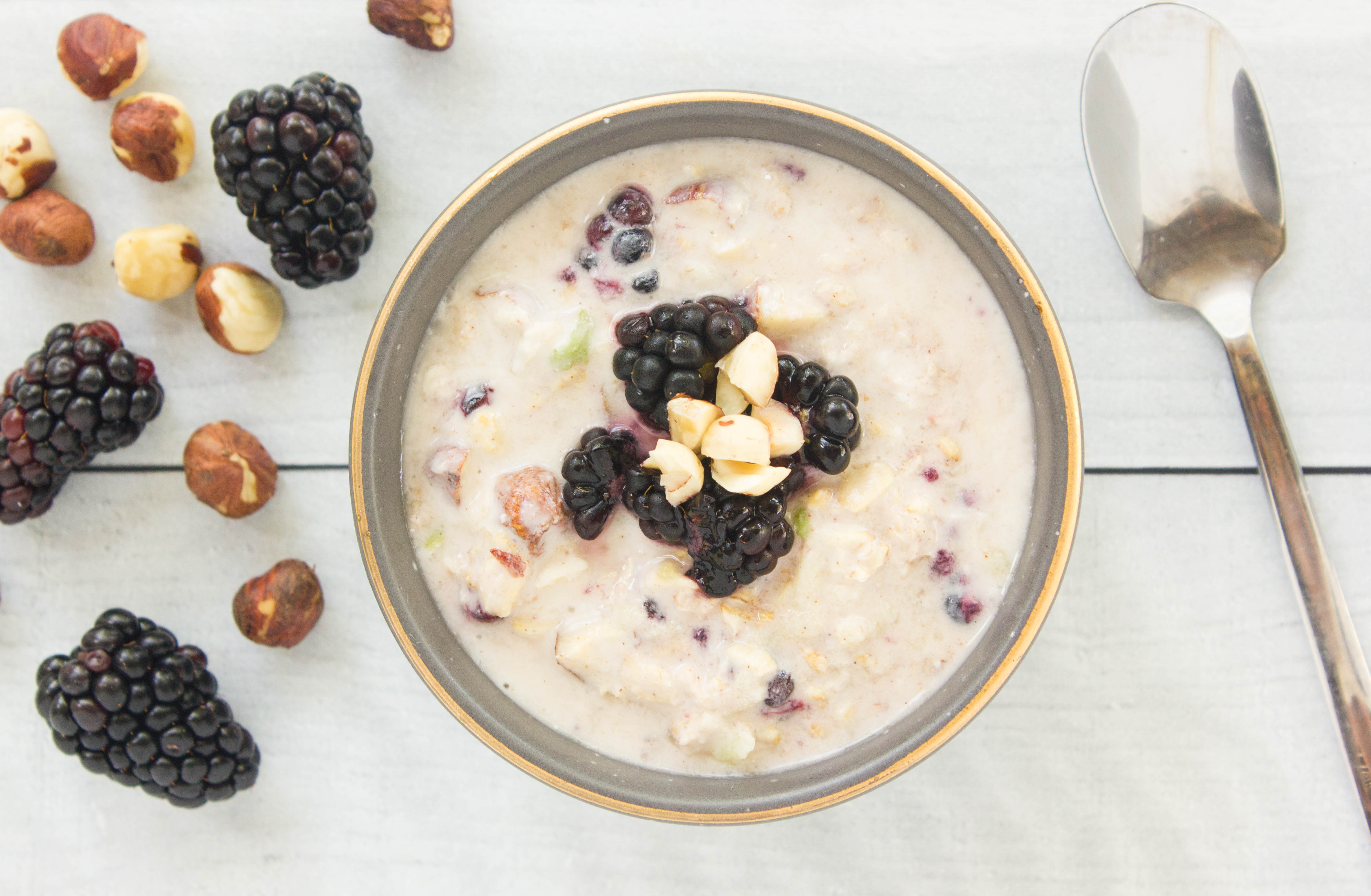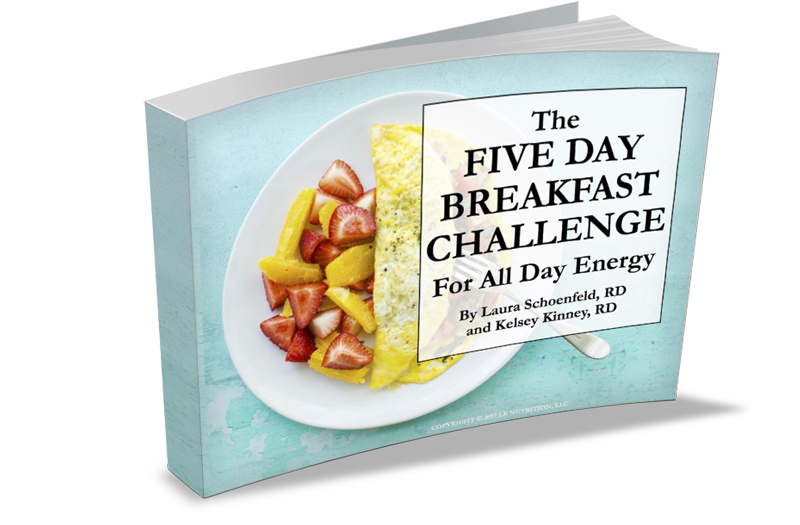One of the most fervently debated questions in the field of nutrition is this: Is breakfast important to eat or not?
While many of us grew up learning that breakfast is important to eat every day for good health, lately there’s been a lot of discussion about the benefits of intermittent fasting. Many people argue that forgoing breakfast is better for our health than eating in the morning.
Is it true skipping breakfast can actually make you healthier? Or are you asking for trouble by not having a meal first thing in the morning?
Is breakfast really the most important meal of the day?
In this article, I’ll explain why breakfast is important for many people to eat, and how to determine if you’re the type of person that would benefit from eating breakfast in the morning.
And if you need help creating a breakfast routine that provides the nutrition that you need, we’ve created a resource just for you.

Why The Controversy Over Breakfast?
To eat or not to eat breakfast… Why is this question so confusing?
Even the research community seems to be divided on this topic.
The problem is twofold.
Many Breakfast Foods Are Unhealthy
One, most Americans are eating a breakfast that in general isn’t going to help their health. Consider what most people eat for breakfast: cereal, bagels, donuts, pastries, and more high carb, low protein, processed foods.
Not only are these typical breakfasts low in nutrients, but they’re primarily composed of refined carbs which will trigger the dreaded blood sugar roller coaster for the rest of the day.
Even supposedly “healthy” choices like low fat yogurt with granola or lightly sweetened oatmeal isn’t likely to give someone the nourishment they need for good health.
So is it any wonder that most people would do better skipping a breakfast like that?
Intermittent Fasting: So Hot Right Now
The other problem is that right now in the nutritional world, ketogenic diets and intermittent fasting are all the rage for rapid weight loss, which the majority of our country is looking to achieve at some time or another. Especially in the new year!
Intermittent fasting is the practice of condensing your eating time to a shorter window, such as 8 hours feeding and 16 hours fasting. For many IF’ers, skipping breakfast is the easiest way to maintain their fasting practice. And many health gurus suggest that all people should be doing intermittent fasting on a daily basis for optimal health.
DOWNLOAD YOUR *FREE* GUIDE TO THE KETO DIET
While IF and keto can be useful therapeutic tools for many people (I do use them in my practice occasionally), the majority of people don’t need to go ultra-low-carb to achieve their health and fitness goals in the long term.
Plus, for many health-conscious people, eating too little is actually the underlying root cause of their health issues. It may sound crazy, but this is an issue I work with clients on all the time. When you skip breakfast, the risk of undereating is far greater than if you’re able to get in three square meals a day!
I find that women especially start to see health problems from inappropriate fasting practices. This is especially common in women who are highly active and have higher caloric needs.
So how do you know if fasting and skipping breakfast is causing problems for you?

Signs That Skipping Breakfast Isn’t Working
If you’re practicing intermittent fasting – or just skipping breakfast haphazardly – and not feeling your best, it’s possible that eating breakfast would be better for your health.
And if you are eating breakfast but it’s not nutritionally adequate, you could be having the same problems as someone who’s skipping breakfast!
Here are some of the most common signs that skipping breakfast – or eating an inadequate one – is hurting your health:
- Fatigue – especially in the morning
- Intolerance to cold
- Sugar cravings
- Caffeine cravings
- Headaches
- Brain fog
- Anxiety
- Poor workout tolerance or recovery
- Excessive hunger and snacking later in the day
- Elevated fasting blood sugar
- Increased insulin resistance
- Low grade inflammation
- “Adrenal fatigue” syndrome (aka HPA axis dysregulation)
Now, before I get a bunch of commenters telling me that intermittent fasting is awesome and that they feel amazing now that they’re doing it, keep in mind that not everyone experiences issues when they skip breakfast.
Personally, I can occasionally postpone or skip breakfast, especially if I have a more leisurely morning. Ironically, I didn’t eat breakfast until about 10AM the morning I wrote this article!
But when I have a busy day, or I’m planning to train with my coach that afternoon, I know I feel so much better – mentally and physically – and perform better in the gym when I’ve had a solid breakfast within an hour of waking up in the morning.
So while many people do great with intermittent fasting as a regular practice, there are a lot of people out there who don’t feel their best without a solid, balanced breakfast.
If you’re experiencing any of the symptoms in the list above, consider taking our 5 Day Breakfast Challenge to see if eating a better breakfast helps you feel your best!

3 Reasons You Should Eat Breakfast
Now that you know the potential problems that can come from skipping breakfast or eating a poorly planned meal, here are my top three reasons you should eat a balanced breakfast every morning.
1. You’ll keep your energy up throughout the morning
Something that many of my new clients complain about as part of their initial case review is that their energy stinks in the morning, or they have a hard time focusing at work in the early part of the day.
Many times when I review their intake information, I see that they’re having little to no food at breakfast, and anything they are eating isn’t nutritionally adequate to support their energy needs.
(The worst is when I see people with “adrenal fatigue” type symptoms doing Bulletproof coffee for breakfast… such a mistake!)
Would you like to save this post?
Your email address is 100% safe and will never be sent spam.
Many of my clients find that by simply changing the way they eat in the morning, or by giving up their misguided intermittent fasting practice, they finally have the morning energy they need to get through their day without having to run on coffee.
2. You’ll finally kick the sugar and caffeine cravings
Speaking of coffee, do you ever notice that some days it doesn’t matter how much caffeine you drink, you constantly feel like you need more?
Or when you’re walking by your coworker’s candy bowl and it’s screaming your name, despite the fact that you don’t ever crave candy when you’re at home?
Many times these sugar and caffeine cravings – especially in the morning – are related to inadequate calorie and macronutrient (proteins/carbs/fats) intake at breakfast.
I can’t tell you how many times I’ve worked with a health-conscious client who had constant sugar cravings and honestly believed it was from too much carbohydrate intake (as if their sweet potato or banana consumption would cause a “sugar addiction!”)
But when we had her start eating a high protein, calorie-appropriate breakfast, those sugar cravings disappeared like magic!
Your body likely isn’t “addicted” to sugar, rather, it’s trying to keep you alive when you haven’t eaten enough. It’s no wonder you crave sugar when you haven’t eaten in 14+ hours and you’re an active, generally healthy person!
If you’re finding yourself struggling with excessive coffee consumption or sugar cravings throughout the day, try taking our FREE 5 Day Breakfast Challenge to see if you can kick those cravings for good.
3. You’ll be less likely to under-eat or overeat during the day
It may sound strange that skipping breakfast could cause both under AND overeating, but let me explain.
For those who are prone to under-eating, skipping breakfast is causing you to lose an important opportunity to get calories into your system.
Most of my real food-eating clients struggle to eat much more than 700-800 calories at a single meal. If you’re only eating twice a day, that means you might only be eating a total of 1400-1600 calories on a daily basis. This is far too little for most people, especially those who are active in any way.
But skipping breakfast can also trigger over-eating in some people. This is because the blood sugar roller coaster that gets triggered by skipping breakfast causes some people to crave food all day. They end up snacking throughout the day and into the evening, particularly on high calorie foods like nuts, candy, and snack bars.
So even if they only ate about 1500 calories at their meals, they might add another 1000+ calories from snacking all day. (I’ve seen people snack on 6+ oz nuts per day, which has over 1000 calories in it!)
And even if you’re not overeating on snacks, if skipping breakfast feels mentally challenging to you – if it requires a lot of willpower – this drains your ability to make good choices later in the day.
You might end up eating an unhealthy, high calorie dinner because you mentally wore yourself out by trying to skip breakfast and subdue your hunger in the morning.
So if you’re struggling with under-eating OR overeating and skipping breakfast (or having a nutritionally inadequate breakfast) is part of your regular routine, it’s definitely time to try a new strategy.

Is Breakfast important? YES!
Eating a balanced breakfast is such a useful strategy for so many of our clients. That’s why Kelsey Kinney and I created a FREE guide to help you makeover your morning meal.
It’s called The 5 Day Breakfast Challenge, and it’s available for FREE to download now!
In this easy-to-follow guide, we’ll teach you why breakfast is important if you want lasting energy and how to create the perfect breakfast to keep you going all day.
This free eBook will teach you why breakfast is so important for fixing fatigue, and the five most important components of an energizing breakfast.
We’re going to challenge you to eat this way for five days to see how much of an impact it has on your energy.
Plus we’ve included 5 of our favorite easy to make, energy-boosting breakfast recipes to give you inspiration for your own morning meals.
We have seen some pretty spectacular results in our clients who have implemented our simple yet effective breakfast strategy.
It’s amazing to see the fast turnaround in fatigue when a client changes their breakfast to one that is truly supportive of healthy energy production.
Take The 5 Day Breakfast Challenge!
You may find it hard to believe something as simple as a well-balanced breakfast could impact your energy so significantly.
(And no, we’re not shills for the cereal industry.)
But we don’t want you to just believe us. We want you to see these results for yourself!
—> CLICK HERE to download your free copy of the challenge.
We can’t wait for you to try out the 5 Day Breakfast Challenge and to start experiencing better energy this week!
And don’t forget to share your photos of breakfast on social media using the hashtag #5daybreakfastchallenge – we want to see what you’re eating!
This post may contain affiliate links. If you click on a link and make a purchase, I may receive a small commission.


+ show Comments
- Hide Comments
add a comment